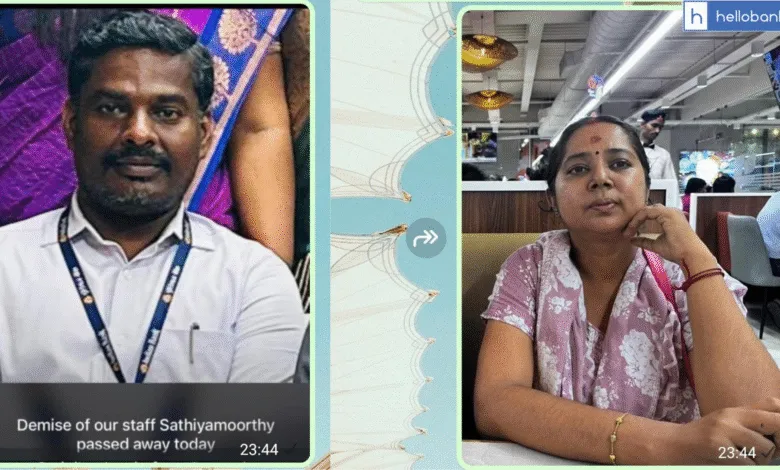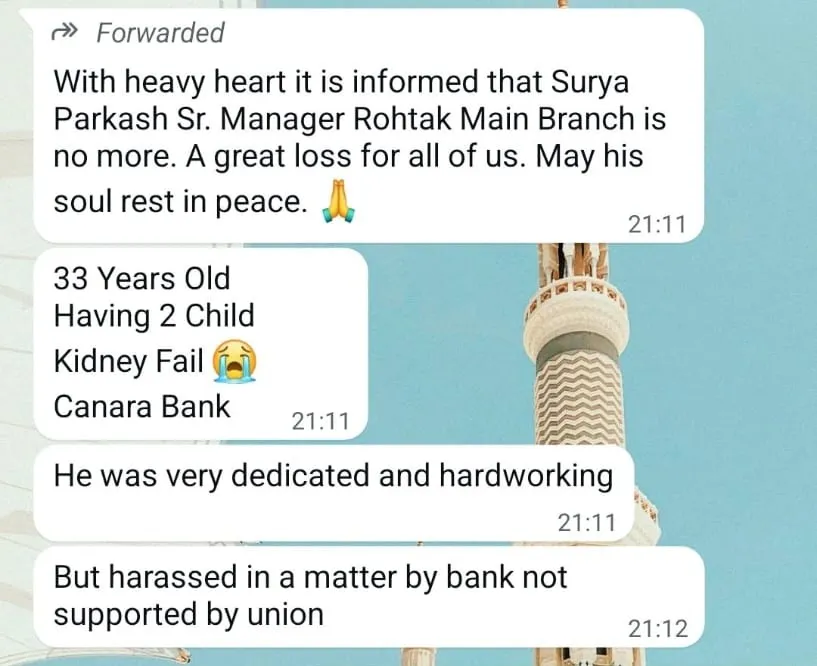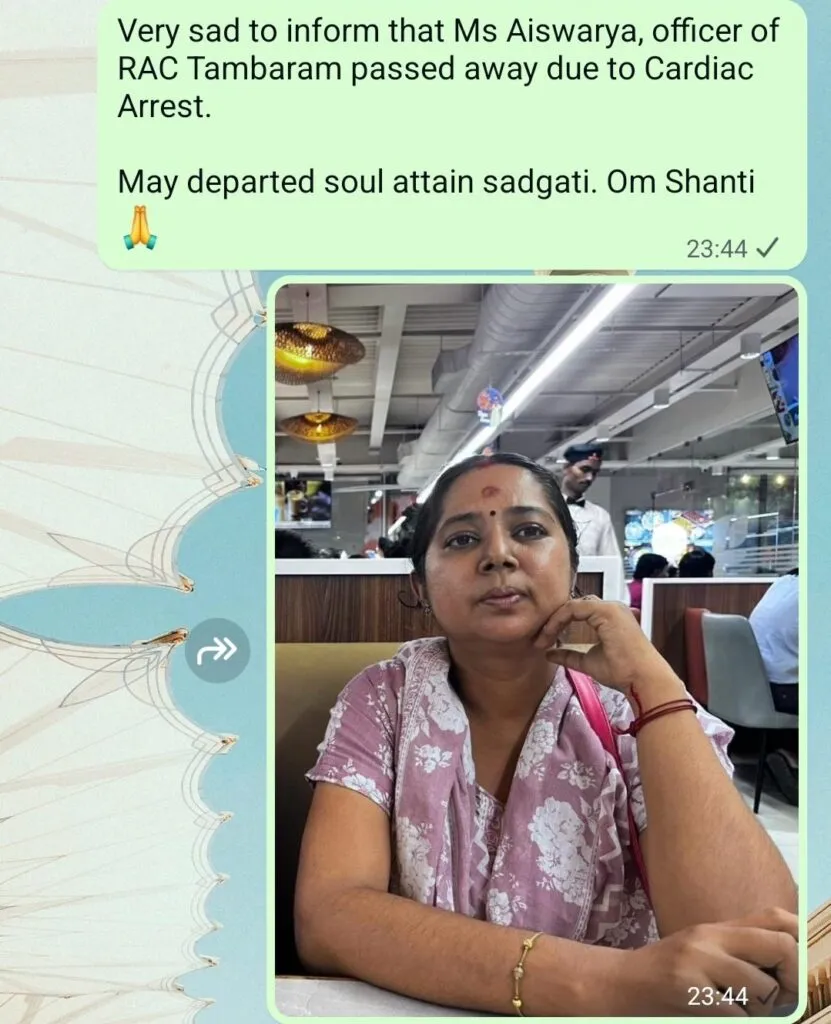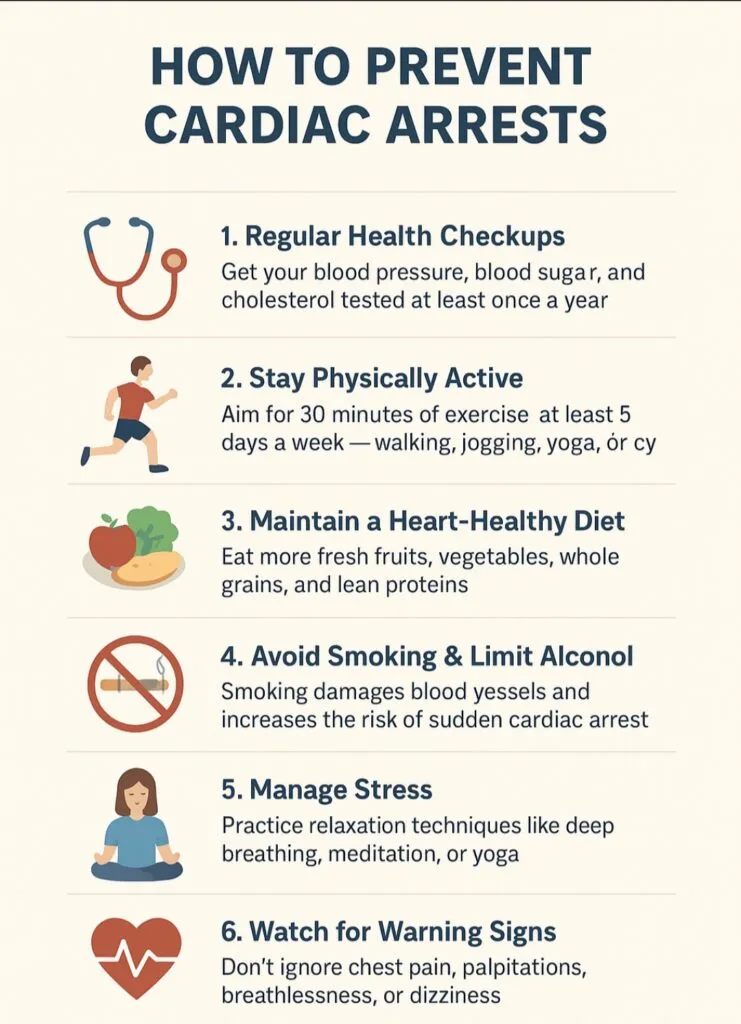Bankers at Risk: Cardiac Arrest Crisis Rising among Bankers

The banking profession, once seen as a secure and prestigious career, is now silently witnessing a worrying trend — an alarming rise in cardiac arrests among bankers. Long working hours, constant work pressure, irregular lifestyle, and lack of physical activity are pushing many employees in the sector towards life-threatening health conditions.
Recently, several deaths due to cardiac arrest have been reported in Public Sector Banks in India. Some of the details are as given below:




Why is this happening?
Bankers often spend 10–12 hours a day dealing with targets, deadlines, and customer demands. This creates mental strain, which gradually translates into physical health issues. Stress is one of the leading triggers of hypertension, diabetes, and heart ailments, eventually leading to cardiac arrest.
Most bankers spend their working hours glued to desks and computer screens, with little room for physical movement. The absence of exercise, combined with unhealthy eating habits, further increases the risk of obesity and cholesterol-related problems. This sedentary routine silently damages the heart.
Lack of Work-Life Balance
Frequent transfers, weekend work, and the inability to spend time with family add to the mental burden. Emotional stress combined with physical strain makes bankers more vulnerable to sudden heart failures.
How to Prevent Cardiac Arrest

Cardiac arrest often strikes suddenly, but the risks can be greatly reduced by adopting healthy habits and regular medical care. Here are some key preventive steps:
🩺 1. Regular Health Checkups
- Get your blood pressure, blood sugar, and cholesterol tested at least once a year.
- Early detection of diabetes, hypertension, or heart disease can save lives.
🏃 2. Stay Physically Active
- Aim for 30 minutes of exercise at least 5 days a week — walking, jogging, yoga, or cycling.
- Take short breaks at work to stretch or move around if you sit for long hours.
🥗 3. Maintain a Heart-Healthy Diet
- Eat more fresh fruits, vegetables, whole grains, and lean proteins.
- Reduce salt, sugar, and oily/fried food intake.
- Stay hydrated and avoid excessive caffeine.
🚭 4. Avoid Smoking & Limit Alcohol
- Smoking damages blood vessels and increases the risk of sudden cardiac arrest.
- Excessive alcohol weakens the heart — moderation is key.
😌 5. Manage Stress
- Practice relaxation techniques like deep breathing, meditation, or yoga.
- Maintain work-life balance and ensure proper sleep (7–8 hours daily).
⚡ 6. Watch for Warning Signs
- Don’t ignore chest pain, palpitations, breathlessness, or dizziness.
- Seek medical attention immediately if you experience these symptoms.
🧘 7. Build a Healthy Routine
- Stick to a fixed sleep schedule.
- Avoid overworking and give yourself time to relax.
- Engage in hobbies or social activities that reduce mental strain.
